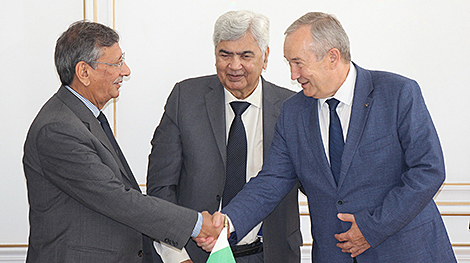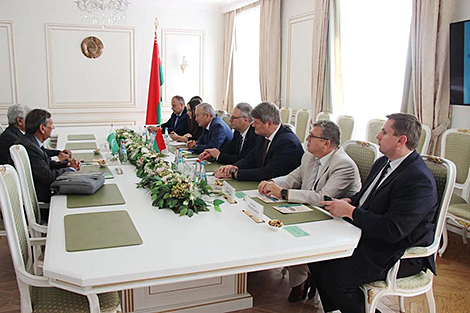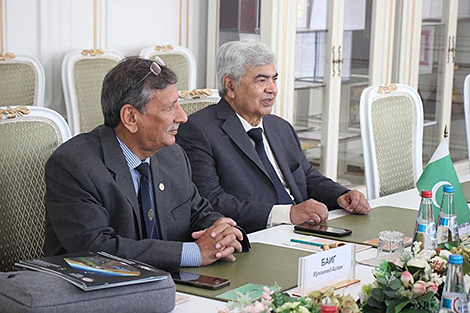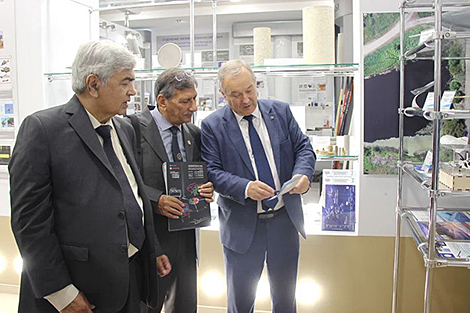Business news
Belarus, Pakistan to cooperate in agriculture, laser technology, AI

MINSK, 19 August (BelTA) - The Academies of Sciences of Belarus and Pakistan plan to develop cooperation in priority areas for the countries. The agreement was reached during the talks between First Deputy Chairman of the Presidium of the National Academy of Sciences of Belarus Sergei Chizhik and President of the Academy of Sciences of Pakistan Kauser Abdullah Malik on 19 August, BelTA learned from the press service of the National Academy of Sciences.
According to Sergei Chizhik, the National Academies of Sciences of Belarus and Pakistan have long-standing scientific ties. In May 2015, an agreement on scientific and technical cooperation was signed between the National Academy of Sciences of Belarus and the Academy of Sciences of Pakistan. “Time has come to update our agreement, including the most relevant and priority areas for both countries. We need to intensify our cooperation,” he stressed.
According to Kauser Abdullah Malik, Pakistan is interested in developing cooperation with Belarusian scientists in such areas as artificial intelligence, laser technologies and agricultural technologies. The goal is to present specific results of joint activities of scientists from Belarus and Pakistan in the near future.



The talks between the National Academy of Sciences of Belarus and a delegation of the Academy of Sciences of Pakistan took place on 19 August. The parties discussed promising areas of cooperation in various scientific events. The visitors studied in detail the scientists’ latest developments presented at the NASB permanent exhibition “Achievements of Domestic Science for Production Purposes”.
The delegation from the Academy of Sciences of Pakistan is visiting the National Academy of Sciences of Belarus on 18-22 August. The program of the visit includes tours of a number of organizations of the National Academy of Sciences of Belarus: NPO Center, Institute of Bioorganic Chemistry, Scientific and Production Center of Multifunctional Unmanned Complexes, Institute of Physics and Technology, Institute of Biophysics and Cell Engineering, Kuprevich Institute of Experimental Botany, and Institute of Genetics and Cytology.







 print version
print version make home page
make home page add to bookmarks
add to bookmarks

